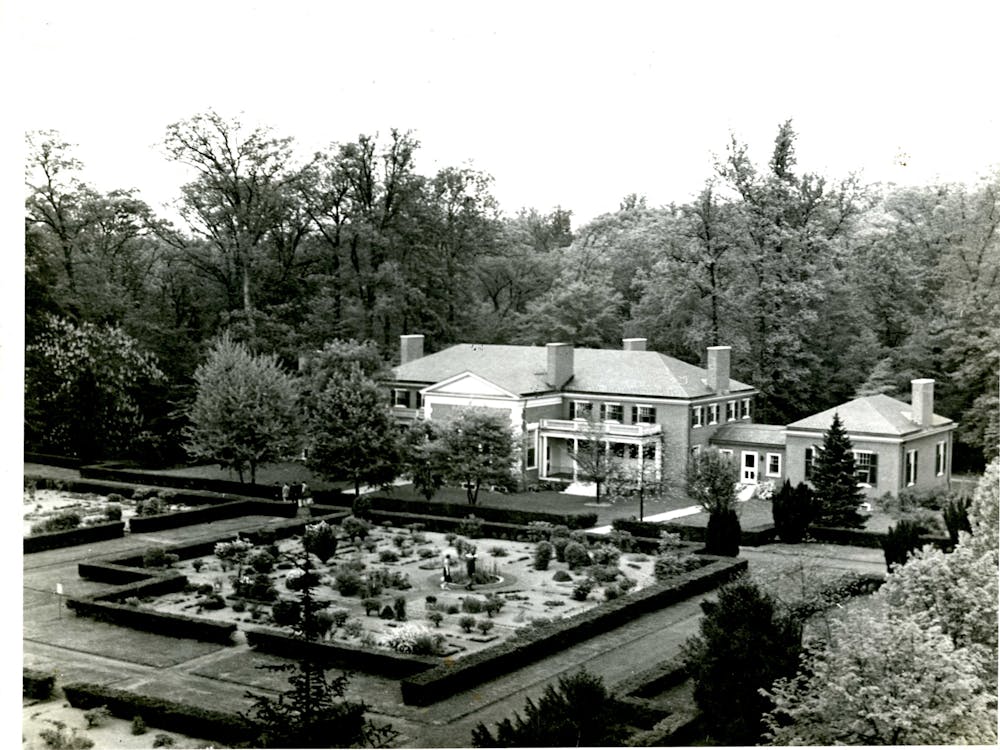The Board of Trustees will convene a new Public Interest Investment Advisory Committee to advise University President Ronald J. Daniels on how to invest the institution’s endowment funds.
Provost and Senior Vice President for Academic Affairs Robert C. Lieberman and Senior Vice President for Finance and Administration Daniel G. Ennis announced the committee in a JHBroadcast email sent to the Hopkins community over Intersession on Dec. 11.
“The committee will consider issues related to separately invested endowment funds,” the JHBroadcast email read. “Where appropriate, it will make recommendations to the University leadership and the Board of Trustees’ Committee on Investments.”
The new committee will be headed by Jon Faust, a professor in the economics department, and will consist of both faculty and students. Students wishing to serve on the committee were required to submit letters of interest and resumes to the Office of the Provost by Jan. 9.
“We are settling the specifics now, but in broad terms, we will be accepting proposals from the University community and initiating a process of dialog and review,” Faust wrote in an email to The News-Letter. “Ultimately, in our advisory capacity, we will issue some sort of advisory opinion to be shared with the Trustees and the community at large.”
A similar committee was originally formed in 1978 and was active until the late 1990s. Currently, the committee is reviewing applications from potential student members. There have been no updates about selected students or about the total number of members who will serve on the committee.
“We are reconvening the group now, responsive to the fact that our faculty, students and staff are engaged in important discussions about a wide variety of issues. This Committee can serve as a formal outlet for those discussions to occur,” Lieberman and Ennis wrote in an email to The News-Letter. “We’re looking for people who are smart and committed to reasoned and considered deliberations. These issues are complicated, and sometimes controversial — and that’s okay. We want people to raise tough questions — at Hopkins, that’s how we get to better outcomes.”
Although details of the committee are not yet firm, the committee will function by receiving suggestions from the community on how the University’s separately-invested endowment funds should be spent.
“On any particular issue, the Committee will decide whether to make recommendations to the Board of Trustees’ Committee on Investments,” Lieberman and Ennis wrote.
The Board will make all ultimate decisions on the University’s investments. The purpose of the University Board of Trustees, established in 1867, is to provide responsibility for Johns Hopkins’ funds and other fiducial matters. As the oldest part of the University, the Board of Trustees holds true the mission and objectives of Hopkins to its spending of investment funds.
“The Board holds a public trust: to guard the University’s integrity, to ensure that it fulfills the purposes for which it was established and to preserve and augment its physical and financial assets,” the Board of Trustees website states.
The Public Interest Investment Advisory Committee will be one of the 14 committees managed by the Board, which range from the Academic Policy Committee to the External Affairs & Community Engagement Committee.
This is a continuation of the initiatives by the Board and the University that combine social concern with fiduciary purposes. The first statement advocated by the Board of Trustees was a divestment from companies conducting business in South Africa in the 1980s. Others have included the divestment of spending from fossil fuel companies.
Other roles of the Board include appraisal and selection of the University president, helping direct the growth of the University and leading other philanthropic developments.
In a JHBroadcast email sent on Jan. 5, Lieberman and Ennis encouraged all students to apply for the new committee.
“We are proud that the people who work, teach and study at Johns Hopkins care about issues of broad social significance,” they wrote. “We encourage thoughtful, engaged students to apply for a seat on the Public Interest Investment Advisory Committee and serve as a voice for the Johns Hopkins community.”
Faust emphasized that the committee’s advice and the subsequent decisions on the University’s investments could affect the political climate of the school and beyond.
“We are very pleased to be serving the Trustees on this Committee and providing a mechanism for concerned members of the University community to engage on important social issues involving the investment of the endowment,” Faust wrote. “I too am interested to see how the discussion will play out on any given proposal.”
In a statement released earlier this year regarding the Public Interest Investment Advisory Commitee, the Board of Trustees emphasized its ultimate responsibility for any consequences of the Public Interest Investment Advisory Committee’s decisions.
“The primary fiduciary responsibility of the University trustees in investing and managing the University’s endowment is to maximize the financial return on those resources, taking into account the amount of risk appropriate for University investment policy,” the statement read. “If the trustees adjudge that corporate policies or practices cause substantial social impact, they, as responsible and ethical investors, shall give independent weight to this factor in their investment policies and implementation.”






















Please note All comments are eligible for publication in The News-Letter.